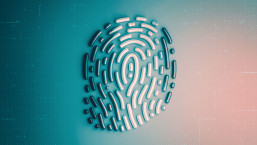Mark Brooks of OnlinePersonalsWatch works with many online dating sites - and says that all of them are plagued by fake profiles, scammers and criminals looking for money, not love. Millions are lost to these scammers each year - and worse still, the crime may be underestimated, as victims are often too distraught to reveal the extent of their losses.
Spotting scammers is getting harder - but there are still ways to ensure you stay safe, Brooks says.
Q: Is there an easy way to spot scammers from ‘normal’ daters?
It used to be easier - not now. If scammers have made it onto a dating site, its because the profile looks normal. All dating sites have to suppress and deal with fraud. Its just part of the business. The line of communication is the give away. If they want you to get off the dating site asap - and communicate by email, say - that's a sign.
Q: If you are creating your own profile, is there anything that might make you a target?
The scammers play the odds. They're looking for some sign of gullibility among people who are likely to have some savings.The religiously inclined are targeted. They're more likely to take a leap of faith. Older women, because its tough to find a hot older gentleman. People who are generous, vulnerable, of-faith and fighting poor odds of finding a partner are ideal. So if your profile hints at any of those, you're more of a target. Get a friend to review it.
Q: I’m already in a relationship online - can I be sure it’s for real?
No. Some of these fake relationships can last for years. They'll pan for gold among tens of thousands to find a few pieces of gold. It used to be easy to just Google phrases - criminals often reused them - but now it is less so. They get smarter and stronger each year.
Q: What should I do if I suspect someone IS a scammer?
I recommend 1. get on an impromptu Skype video call. If they're a different person than on their profile photo, bail! 2. If the person has a Facebook profile with 10 friends, well that's a dead giveaway as well. Who has just 10 friends on Facebook? 3. Listen to your gut. In general I recommend people chat for a short while, and then jump onto a video date anyway. That helps waste less time in general anyway. I don't think anyone should put more than half an hour of time into communication without doing a video or real life date.
Q: My lover sends me gifts - surely that means he’s for real?
Scammers will take months to groom a target. They'll send gifts, and make users feel beautiful and cared for, and then it them with a test. A small request to open up their wallets. Then they're off to the races.
Q: What should I watch for?
Bear in mind that its the scammers job to get users off the site asap. They want to get into direct email or Skype or phone contact asap. That way dating sites detection systems have less chance of picking up on unusual lines of communication. For example, we know people don't use the word 'wire' in regular dating communications. That's a red flag and is usually picked up by dating sites auto-detection systems. The first line of defense. But the scammers know better to use that word on dating sites now. Its a constant cat and mouse.
Q: If I’m worried I’m being scammed, what do I do?
Report to the local police and ask to be referred to their cyber crimes unit. Sadly, prosecutions are still too rare. The problem is, most of these scams are cross-border and it becomes tough to coordinate jurisdiction. Its exhausting, and most victims just want to put the entire event behind them. Even if they've been taken for tens of thousands of dollars. They're not going to get satisfaction legally or financially. What they can do is suck up the scammers time and just reel them in in return. I like the 419eaters.com approach. In fact, in the dating industry, some sites used to use 'scammer hell.' They'll identify scammers and then put them into their own database where they just scam each other.
Q: What is the worst thing I can do?
If you hop on a plane to meet your lover, you might be placing yourself in physical danger. My advice, don't send money to someone you've never met, and don't jump on a plane until you've verified the identity and existence of the person you're visiting. Ideally, take a friend.
The views and opinions expressed in this article are those of the author and do not necessarily reflect the official policy or position of WLS nor ESET.




